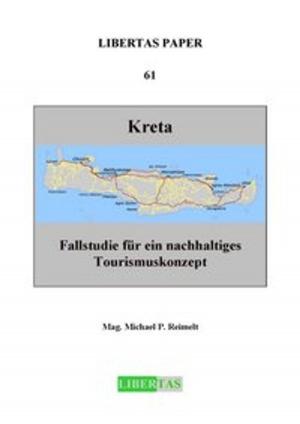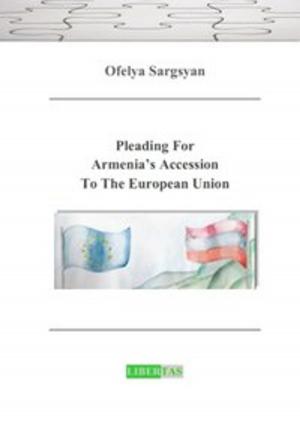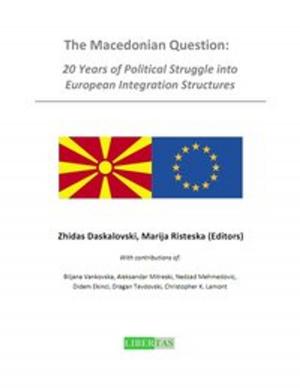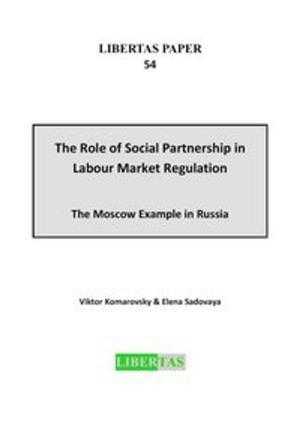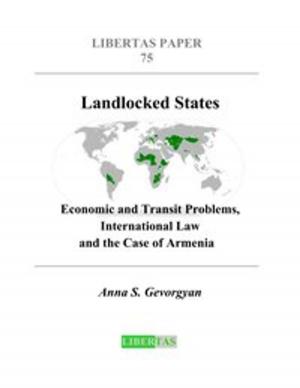The Common Agricultural Policy and a Changing World Trade Order
Business & Finance, Economics, International| Author: | Andreas Magnusson | ISBN: | 9783946119296 |
| Publisher: | Libertas | Publication: | April 21, 2006 |
| Imprint: | Libertas | Language: | English |
| Author: | Andreas Magnusson |
| ISBN: | 9783946119296 |
| Publisher: | Libertas |
| Publication: | April 21, 2006 |
| Imprint: | Libertas |
| Language: | English |
Agriculture is on top of the agenda in most discussions concerning world free trade and the WTO negotiations. In this context, the European Union’s Common Agricultural Policy, the CAP, has become one of the Union’s most criticised policies. The CAP is often described as an obstacle, not only to free trade in agricultural products but also to the general advancement of global free trade. At the same time, the CAP may contain elements that could serve as a model for a new global agricultural regime. This paper applies an interdisciplinary approach to answer the following questions: how is the CAP influenced by and how does it influence international trade in agricultural commodities? As a precursor to the analysis, the paper describes the development and the principles of the CAP bearing in mind that the world trade negotiations and the resulting agreements have had a direct impact on the CAP development. The outcome of the Doha Round will influence the future of the CAP but at the same time, Europe and its CAP will also have a de jure impact on the outcome of the new WTO regime on agriculture. In order to understand the significance of this future interaction between the CAP and the WTO, the opinion of key players in the WTO towards a central element of the CAP, namely its multifunctionality, shall be analysed. The CAP has furthermore a de facto impact on world trade. Through an analysis of the effects of one of the CAP regimes, the sugar policy, this paper seeks to analyse which those effects are. The analysis is structured in the following way. The book analyses the development and the principles of the CAP seeking to examine how the CAP has evolved over time and to see to what extent this evolution has been a consequence of GATT/WTO pressure. The book also discusses the role of agriculture in world trade and how the CAP has influenced the current agricultural regime. In addition the book analyses the WTO negotiations on agriculture, focusing on the negotiation goals of the key players, in particular concerning the concept of multifunctionality, a concept whose eventual acceptance in the WTO will decide the future impact of the WTO upon the CAP. The indicated written sources have been complemented by a series of research interviews, conducted by the author.
Agriculture is on top of the agenda in most discussions concerning world free trade and the WTO negotiations. In this context, the European Union’s Common Agricultural Policy, the CAP, has become one of the Union’s most criticised policies. The CAP is often described as an obstacle, not only to free trade in agricultural products but also to the general advancement of global free trade. At the same time, the CAP may contain elements that could serve as a model for a new global agricultural regime. This paper applies an interdisciplinary approach to answer the following questions: how is the CAP influenced by and how does it influence international trade in agricultural commodities? As a precursor to the analysis, the paper describes the development and the principles of the CAP bearing in mind that the world trade negotiations and the resulting agreements have had a direct impact on the CAP development. The outcome of the Doha Round will influence the future of the CAP but at the same time, Europe and its CAP will also have a de jure impact on the outcome of the new WTO regime on agriculture. In order to understand the significance of this future interaction between the CAP and the WTO, the opinion of key players in the WTO towards a central element of the CAP, namely its multifunctionality, shall be analysed. The CAP has furthermore a de facto impact on world trade. Through an analysis of the effects of one of the CAP regimes, the sugar policy, this paper seeks to analyse which those effects are. The analysis is structured in the following way. The book analyses the development and the principles of the CAP seeking to examine how the CAP has evolved over time and to see to what extent this evolution has been a consequence of GATT/WTO pressure. The book also discusses the role of agriculture in world trade and how the CAP has influenced the current agricultural regime. In addition the book analyses the WTO negotiations on agriculture, focusing on the negotiation goals of the key players, in particular concerning the concept of multifunctionality, a concept whose eventual acceptance in the WTO will decide the future impact of the WTO upon the CAP. The indicated written sources have been complemented by a series of research interviews, conducted by the author.

